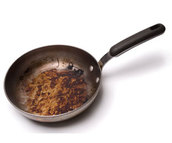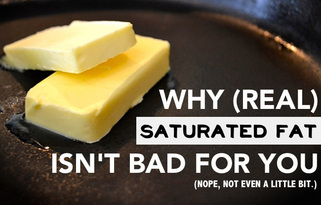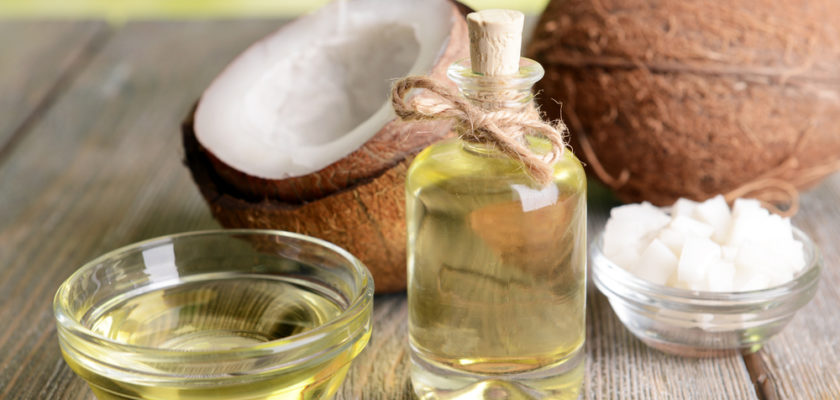Coconut oil is absolutely magical. There, I’ve said it…
Coconut oil is a fatty oil extracted from the fleshy section of coconuts. It’s been known to have a whole heap of attractive benefits in a range of applications such as nutrition, medicine and industry.
Some of the impressive things that coconut oil can be used for are things such as being used as a form of bio-diesel in the Philippines [1], as a moisturizer for skin [2] and even as an engine lubricant [3].
Despite it’s variety of industrial and medical uses, this article will focus primarily on the benefits to physical health arising from the consumption of coconut oil – simply put, all the wonderful things that happen to your body when you eat more coconut oil.
Reason #1 – Populations That Eat Coconuts are Super Healthy

Coconut oil is not new, whilst in the Western world it may seem like an exotic product, in some parts of the world coconut has long been a foundation of people’s diets, a diet that research has shown they have thrived on for generations.
Take the Tokelauans as an example, an area off the coast of New Zealand in the South Pacific Ocean.
In terms of their local environment, much of the land is filled with coconut plantations and coconuts feature as approximately 63% of their energy intake [4], because of the saturated fat contained in coconuts, they are the biggest consumers of saturated fat in the world.
For both the Takelauans and the Pukapukans (another population of people based on an island in the South Pacific Ocean, whose coconut intake comprises 34% of their diet) “vascular disease is uncommon”, i.e. poor health in terms of their hearts or blood vessels is really rare.

If there’s one other thing that you take from this article, apart from the fact that coconut oil is quite incredible of course, is that saturated fat is NOT unhealthy!
I’ll go into this fact a little bit more further on. For now take the Kitava study as a further example, cited as “one of the most complete and useful characterizations of the diet and health of a non-industrial society”, where the people of Kitava were studied in depth [5].
Like other populations mentioned here, the Kitavans approximately 17% of their calories from coconuts / saturated fat. They are quoted as having “a resistance to degenerative diseases”, pretty cool if you ask me!
So that’s reason #1 and I’m already tempted to make a bigger order on my next coconut oil shipment, I mean imagine if there was some sort of race between the average guy from America / Europe and an average man from Tokelau, I know who my money would be on…
Reason #2 – More Energy & Endurance
To be healthy, we all need to exercise. It’s a fact. Unfortunately, having the energy to exercise isn’t always easy, particularly if you’ve had a stressful day with too much work to do.
One option for getting an energy boost is caffeine, though this may either leave you tired several hours later, or even worse, unable to sleep at bedtime.
Another option could be through carbohydrates, though unless you opt for low GI carbs such as oats or quinoa, you’re likely to have a crash in blood sugar, leaving you craving more carbs later on, maybe that was part of the inspiration for the Pringles slogan “one you pop, you can’t stop”.
Coconut oil is made of shorter chain fats, which are digested quickly by the body and therefore give you a great boost of energy. These fats are not used by the body like fats, but rather like carbohydrates, meaning they are sent straight to the liver and immediately converted to energy [6].
With regards to increasing exercise endurance, one two-week human study reported that the specific fats found in coconut oil reduced the body’s reliance on carbs for energy and cut down lactate produced during exercise.
This resulted in the subjects having a lower RPE (Rating of Perceived Exertion) during moderate-intensity exercise whilst also increasing the duration of subsequent high-intensity exercise [7].
Whether you’re about to pound out a couple of miles training for an event, or are embarking on a high powered HIIT (High Intensity Interval Training) workout, it makes sense to consume a bit of coconut oil beforehand.
It’s somewhat similar to putting a more effective petrol into your Ferrari (if you’re lucky enough to have one).
Reason #3 – Reduce Hunger

If you want to be healthy, having your body fat percentage too high is not the way to go. One of the most effective ways to lose fat, alongside increasing the amount of exercise you do, is to reduce the amount of food you eat (i.e. putting yourself in what’s known as a “calorie deficit”, which just means you’re burning off more calories than you’ve eaten or drank). If you’re anything like me, this isn’t always easy.
When you’re hungry, it’s quite normal to see your hand reaching for a chocolate bar or packet of crisps without even making the conscious decision, naturally, this makes losing weight a little bit more difficult!
Here’s where coconut oil saves the day. Many studies on the special fats in coconut oil show that, when compared to the same amount of calories from other types of fats (e.g. animal fats or sources such as olive oil), participants of the study felt more satisfied which led to an automatic reduction in calories [8].
The same article also states that, combined with Reason #2 of increasing your energy, changing the fats intake from the more commonly used sources e.g. butter, mayonnaise or olive oil, for coconut oil, can result in avoiding a weight gain of up to 1.35kg/month!
So the big question is, would you want to weigh in at up to 16.2kg lighter at the end of the year just by switching your fat intake to coconut oil? The choice is yours..
Reason #4 – Cooks at High Temperature Easily

Whilst I don’t personally run a Michelin star restaurant, I like to dabble with a bit of home cooking (hopefully Gordon Ramsey doesn’t come to my house to judge though..).
Some fats used to cook with for frying, such as olive oil or Ghee, don’t have a particularly high smoking point and can result in the horrible burnt sections on the frying pan, normally resulting in you leaving the pan in the kitchen sink as it “needs to soak”, potentially annoying your housemates.
The smoking point of an oil is important because it stands for the temperature in which the oil burns. This means that if your cooking at high temperatures, such as frying a juicy steak in olive oil or corn oil, the oil is likely to burn, which turns the good cholesterol into bad cholesterol by oxidizing it [9].
Unfortunately, what may have started out as trying to use olive oil for it’s health benefits, because of the cooking process, you turn your meal into something considerably less healthy, where the oil that’s been mixed with oxygen ends up leading directly to vascular disease.
Fortunately, coconut oil is different.
With a smoking point of 450 degrees Fahrenheit for a lightly refined coconut oil [10] compared to a smoking point of 320 degrees Fahrenheit for extra virgin olive oil, a common household staple for cooking [11], all of the nasty health effects that are mentioned above (e.g. more bad cholesterol and increased risk of cardiovascular disease) are significantly reduced, if not eliminated.
This means that you can fry all of your normal foods guilt free without losing any of the flavour. In terms of maintaining the health benefits when cooking with oil, you can consider coconut oil as a cross between a knight in shining armor and Batman.
Why not try cooking up some green vegetables in coconut oil for even more health benefits?
Reason #5 – Improves Digestion

Digestion is the process by which your body breaks down food effectively and absorbs all the nutrients it needs. If you struggle digesting food efficiently, your body won’t be able to absorb all the vitamins and nutrients your eating.
Due to the special fats within coconut oil, they are broken down almost immediately, meaning that the enzymes that break down fat aren’t even essential, this results in less strain on the digestive system when compared with other types of fats consumed [12].
There are also many digestive disorders that are unfortunately common in the world today, such as irritable bowel syndrome (IBS), ulcerative colitis, gastritis, diverticulosis and constipation.
Coconut oil has been shown to help people with digestive difficulties as because the fats are so easily absorbed by the body, they also support the absorption of other nutrients into the body too [13].
Even those with Crohn’s disease, where people have such difficulty absorbing food that they actually become underweight, experience benefits from eating coconut oil, not only for the health benefits of coconut oil alone, but also because they are able to absorb other nutrients more easily.
Whether you have a digestive disorder or not, improving the efficiency by which your body absorbs nutrients is a valuable addition to the nutrition toolbox.
Reason #6 – Boosts Immune Function

Not only is coconut oil a great source of energy enhancing, easy digested and hunger reducing fats, it also is a powerful anti-viral and anti-bacterial agent.
Elements in coconut oil are converted into a compound called monolaurin, which is an antiviral agent that fights off a whole range of viruses such as: herpes, influenza, cytomegalovirus, listeria monocytogenes, helicobacter pylori, giardia lamblia and even HIV [14].
Even if you don’t know what all of these are, all you need to bear in mind that coconut oil is really good at boosting your immune system and helping prevent the onset of a variety of diseases.
You may even wish to up your coconut oil intake to fight against the common cold as studies have shown that coconut oil can bolster a weakened immune system by improving the number of white blood cells, which act to fight viruses and infections [15].
If your immune system is like a brick wall, think of eating coconut oil as employing a squadron of SAS soldiers to guard it.
Reason #7 – Great Source of MCTs

Conut oil is approximately 2/3 medium-chain fatty acids (MCFAs), otherwise known as medium-chain triglycerides or MCTs.
Triglycerides is just a fancy word for fat, meaning MCTs are a saturated fat.
Saturated fats have been wrongly demonized through poor scientific studies from over 30 years ago and have been stated as “misguided and potentially dangerous”, whereas in fact, high saturated fat consumption is never been proven to have a definite link to cardiovascular disease or poor health. [16] [17] [18].
Many articles from the past actually advise against coconut oil as “saturated fat should be limited to 7-10% of total calories because it can increase risk of heart disease” according to the AHA and 2010 Dietary Guidelines, luckily we now know these to be completely rubbish!
I’ll repeat it one last time, saturated fats have no scientific link to poor health, if you’re not convinced I encourage you to read the following article which states that the original advice for hundreds of millions of American and UK citizens was based on studies on a “small number of unhealthy men” and it does not only need a review but “should not have been introduced” [19].
Pretty crazy when you think about it.
Conversely, the increased amount of carbohydrates in people’s diets has been found to raise the levels of a fatty acid associated with diabetes [20].
When you think back to reason #1 and the people of the South Pacific Islands, this “revelation” that saturated fat isn’t that bad is hardly surprising.

It’s worth noting that all fats are not created equal (additionally a calorie is not a calorie, i.e. different calorie sources will have different effects on the body).
Saturated fats as we know, despite long thought to raise heart disease risks, actually doesn’t.
However, trans fats (i.e. the ones found in fried foods and baked goods), are known to raise bad cholesterol and lower good cholesterol, increasing the risk of heart disease.
Best stick to the coconut oil rather than a KFC bucket in that case! MCTs are also different to long-chain triglycerides (LCTs) as they are more easily absorbed and broken down by the body for energy.
It’s as if MCTs found in coconut oil are smaller and therefore fit through the digestive “sieve” easier, requiring less energy and meaning it’s more readily available as fuel.
Fortunately this also means that MCTs are more likely to be used for energy than turned into fat, whereas LCTs, found in many other foods are more difficult for the body to break down and also may be more likely to be stored as fat.
You can think of MCTs as tiny pieces of dry wood being thrown onto a fire whilst LCTs would be huge wet logs that take much longer to burn.
For athletes and bodybuilders, MCTs have also been useful after heavy training sessions as rather than be stored as fat, MCTs are more likely to be burned in mitochrondria (the little energy making factories in your cells) to provide energy to tired muscles [21].
Reason #8 – Excellent Source of Lauric Acid

What’s lauric acid you say? Lauric acid is a saturated fat, and makes up about 50% of the fatty acids in coconut oil. Coconut oil is the best sources of lauriic acid found in nature.
When the body breaks down lauric acid, monolaurin is produced (essentially a super compound that has antiviral, antimicrobial, antiprotozoal and antifungal properties) [22].
The body is unfortunately unable to produce monolaurin if there is not lauric acid, some of the viral infections it can treat includes the following: influenza (the flu), swine flu, avian flu, the common cold, fever blisters, cold sores, genital herpes caused by HSV, genital warts caused by HPV, and even HIV / AIDS [23].
Monolaurin works by destroying lipid coated virses (meaning that it disrupts the fatty coating of organisms like fungus, bacteria and viruses, therefore destroying them).
Reason #9 – Can Help Reduce Belly Fat

Nobody wants a big belly or love handles, yet unfortunately it seems to be one of the very last areas to disappear when both men and women are losing weight.
There has however, been a range of studies that show coconut oil to be effective in decreasing belly fat.
In addition to the likelihood of belly fat reduction from reasons #2 and #3 from above, there has been a study by the journal of lipids (journal of fat to you and me) that tested the effects of 40 participants eating either 2 tablespoons of coconut oil or 2 tablespoons of soybean over a period of 28 days.
The results showed that although both groups had similar reductions in body mass index (BMI), those who consumed coconut oil had a decrease in belly fat, compared to the soybean oil group having a slight increase in weight [24].
A second study tested a group of obese men, giving them two tablespoons of coconut oil each day over a week, with the results being that only waist circumference was reduced, with no changes in the fat profiles, the subjects waist size however was reduced by an average of 2.86cm [25] not astonishing by any stretch of the imagination, but for simply adding a bit of coconut oil as the only diet change? Sounds good to me, Summer abs, here we come!
To boost your fat loss even further, try 2 sessions of high-intensity interval training (HIIT) per week and some yoga to see the pounds drop away.
Reason #10 – Supports Stable Blood Sugar
Blood sugar is the amount of glucose (sugar) present in the blood, too high and you may feel sick, faint or throw up, too low and you may feel shaky, unhappy, hungry or tired. It goes without saying that stable blood sugar levels is where we’d like to be.
One study in the 2009 issue of “Diabetes” was conducted on patients with type 1 diabetes (meaning people who can’t produce insulin and therefore can’t regulate their own blood sugar levels), the results showed that the MCTs found within coconut oil helped steady blood sugar levels in the participants [26].
Coconut oil is said to help people manage their own blood sugar levels as it can have improvements in how people use insulin in their body (one of the hormones that affects blood sugar) [27].
Anecdotal evidence also supports the notion that coconut oil is effective for blood sugar management and would therefore greatly benefit those with diabetes [28].
Whether you have diabetes or not, anything that helps avoid the 2 ends of the blood sugar spectrum seems worthwhile to me!
Reason #11 – Supports Healthy Hormone Production

Hormones are super important. They affect many different processes in the body such as: growth and development, metabolism (how your body gets energy from food), sleep quality, mood, sexual functions and reproduction.
Fats are needed by the body to produce hormones, the body is made up of saturated and monounsaturated fats, it is therefore these fats that we need to supply our body for optimal hormone production [29].
One way in which coconut oil can do this is by promoting the conversion of cholesterol into pregnenolone (one of the building blocks the body uses to make hormones). If you’re looking to boost your hormones even further, you’ll want to have compound exercises into your workouts too!
Hormones admittedly have lots of scientific names, all you need to know is that if you supply your body with the fats it needs such as coconut oil, your internal factory will be in tip top shape and will lift your mood, improve your sleep and give you a whole range of benefits from optimal hormone production. Not bad right?
Reason #12 – Boosts Ketones

Ketones. You may have heard of these being refered to in popular low carbohydrate diets where people seek to “go ketogenic” whereby, when faced with a limited amount of carbohydrates, the liver breaks down fat into fatty acids and ketone bodies.
MCTs are more easily converted into ketones, however (this is the magical bit) despite being originally converted from fat, they can not be reconverted into fatty acids for storage, which results in them either being used or expelled during respiration [30].
Therefore the energy you’ve eaten from food is either used up or removed from the body!
Now that’s pretty amazing, particularly for those wanting to burn off a few extra pounds ready for summer.
Not only does the increased ketone production in the body (a state known as “ketosis”) from coconut oil help with further weight loss in addition to reasons #2 and #3, it also has positive effects on people with epilepsy, leading to “excellent seizure control” [31].
Comapared with going into ketosis, your body will use fat as it’s primary food source, whereas in “glycolysis” (where you’re primary source of energy is carbs / glucose), once your body has used up the glucose from carbs, the breakdown of fat for energy has to compete with the breakdown of muscle for energy.
Ketones are also sold by supplement companies for their slimming effects, although, if you simply consume more coconut oil, you’ll have all the ketones you need for weight loss, and not a seizure in sight!
Reason #13 – Better Brain Function

Coconut oil helps with ketone production which is great for weight loss and even controlling seizures for those with epilepsy, but it also has been shown to improve brain health and cognitive function.
The MCTs in coconut oil acts as an additional fuel source for both the brain and nervous system, it may even more more efficient than glucose as it provides more energy per unit of oxygen used, the ketones from coconut oil may also directly reduce the stress on areas of the brain [32].
One of the most exciting uses of coconut oil is as a potential Alzheimer’s treatment. Alzheimers is now commonly being referred to as “type 3 diabetes”, it is a neurological (brain) disorder that causes memory loss and reduced brain function, it is also degenerative, meaning that the reductions in memory and brain function sadly become worse over time.
In the disease, the cells in the brain become insulin resistant (don’t respond to glucose / sugar) and unfortunately die over time.
On the other hand, coconut oil does not work with glucose and scans of the brain of Alzheimer’s patients show that, despite the brain cells becoming unresponsive to glucose, they are able to absorb energy from the ketones produced from coconut oil consumption [33].
A woman named Dr. Mary Newport has popularized the use of coconut oil as a treatment for Alzheimer’s when her husband developed early symptoms of the disease and has written an in-depth account of her husbands progress [34].
Coconut oil has also been shown to improve memory loss and memory disorders where the positive effects can be experienced in as little as 90 minutes after the first dose [35].
Additionally, diets high in MCTs such as the ones found within coconut oil have been shown to delay brain aging [36] and they have also been shown to improve brain function through several kinds of antioxidant effects [37].
Finally, ketogenic diets have also been shown to improve the rate at which new mitochrondria (the energy factories in cells) are produced, giving people a feeling as if “the lights are now turned on” [38].
The benefits of “going ketogenic” are actually quite astonishing in terms of improved brain function, there’s tons of interesting research on the subject if you give it a Google. If you adopt a pescatarian diet, high in Omega 3s, you’ll likely boost these benefits even further!
It is as if coconut oil wipes your mental computer free of viruses whilst also keeping your battery from burning out so it can continue to run at peak performance long into the future.
Reason #14 – Reduce Inflammation

Inflammation is the process by which an area of the body gets swollen, red and sometimes painful (not pretty) and is usually the body’s reaction to either infection or injury.
The body needs to go through this process sometimes to get rid of damaged tissue or seal off an injury, although naturally we’d like this healing process to be a bit quicker. So, guess what food is an effective anti-inflammatory?
No surprises here, it’s coconut oil again. It is considered as one of the best natural remedies for inflammation, so if you’ve had an injury playing sports or overdone it training for a marathon, coconut oil can help reduce some of the pain and get you fighting fit again quicker than sitting at home feeling sorry for yourself watching Netflix.
Many studies have also praised coconut oil for its ability to inhibit the inflammation suffered by arthritis, a disease which causes painful inflammation and stiffness in the joints, where many patients who suffer from aggressive evolution of the disease become clinically disabled within 20 years.
A study completed in India found that the antioxidants extracted from virgin coconut oil were actually more effective in reducing inflammation than one of the popular anti-inflammatory drugs prescribed for arthritis, Indometacin [39]. Who needs a heat pack when you’ve got coconut oil eh?
Reason #15 – Lowers Bad Cholesterol

Cholesterol, sounds bad doesn’t it? For many of us the image of clogged arteries from excessive nights of burgers and pizzas come into our mind, however, cholesterol is simply a waxy substance made by the liver but is also found in some foods.
It is important to us as it helps us make vitamin D, hormones and even bile so we can digest food. To complicate matters, all cholesterol is not created equal.
There are 2 main forms of cholesterol, where “low density lipoprotein” or LDL for short is often called bad cholesterol, whereas “high density lopoprotein” (HDL) is usually called good cholesterol because it is helps remove LDL cholesterol away from the arteries, acting as a ‘scavenger’ [40].
Science aside, we’ve got the cholesterol good guys (HDL) and the cholesterol bad guys (LDL), therefore it makes sense to help the good guys and try to get rid of the bad guys.
Going back to the Brazilian study on 40 young obese women referred to in reason #9, the coconut oil group experienced an increase in HDL and LDL (both good guys and bad guys), however, their HDL rose proportionately more [41], therefore improving their HDL / LDL ratio, great news.
It is also an established fact that the cholesterol ratio is a far more accurate indicator of heart disease risk than the total amount of cholesterol [42].
Varieties & Where to buy
Like with most products, there is a variety of ways in which what should be a homogeneous product is altered during the production process to either improve profits, shelf life or both.
There are two main groups of coconut oil, unrefined (sometimes referred to as “pure” or “virgin” coconut oil) and refined. Unrefined coconut oil means that there have been fewer chemicals used in the production process and therefore there will be less chemicals in the final product, this does however mean that it will be a bit more expensive than refined coconut oil.
It’s worth mentioning that coconut oil (because coconuts grow on a tree) can never be 100% unrefined as the only 100% unrefined coconut oil would be still inside the coconut meat picked from a tree.
Refined coconut oil is usually made from dried coconut meat (called “copra) which may have been bleached and treated to reduce potential bacteria developing, depending on the manufacturer, the amount of chemicals used in the production will vary from one supplier to another.
Refined coconut oil is usually considered as normal coconut oil, it has no coconut taste (so it won’t impact the flavor of your meals), because of the cheaper production process, this also translates into a cheaper final selling price.
In order to be confident in the production process used (therefore containing the least potential chemicals used) you may wish to opt for an organic unrefined raw coconut oil, this will however potentially have a slight coconut taste / aroma. If you can’t find this is in your local area, not to worry, you have the option of either ordering online or picking up some refined coconut oil, which will still have all the benefits listed above but potentially to a slightly lesser degree.

As with any shopping trips to the supermarket, it’s always a good idea to read the label and the ingredient list of what you’re buying, remember, the ingredient with the most volume will be at the top of the list so if you’re choosing between 2 coconut oil, use the ingredient list to help you decide, if it has a bunch of crazy ingredients at the top of the list, it’s probably worth putting back on the shelf!
Personally, I pick up my coconut oil from a local Asian supermarket down the road, they do also have it in my local Sainsbury’s which is a bit more expensive (what can I say? I’m a bit frugal).
You should be able to find good quality coconut oil at either your local supermarket (if it’s big enough), a local health store, an Asian supermarket or even online (this would also give you a greater chance of buying in bulk and therefore saving money per serving).
Ways to Eat More Coconut Oil
Coconut oil is not only bursting with health benefits, but is it also incredibly versatile, below are some of the ways in which you can fit more coconut oil into your diet:
In Hot Drinks
Whether it’s putting a tablespoon of coconut oil into your hot chocolate, your coffee, your tea or your green tea, putting coconut oil into your beverage is an easy way to up your coconut oil intake, it also adds a pretty tasty silky / creamy texture to your drinks!

In Smoothies
Want your smoothies to be a bit more satisfying? Slot in some coconut oil into the mix.

Bear in mind that if you put it straight in as a solid, the blending process may not break it up sufficiently and you may be left with tiny clumps of coconut oil inside your fruity drink. If you want to avoid this, you can heat the oil up in the microwave and pour it in just before blending to get an even distribution of coconut oil into your smoothie. You could also mix it into a protein shake!
Cooking other foods
As mentioned above, coconut oil is a healthier alternative when cooking at high heats compared to olive oil or other fats available. You can easily substitute your normal fat of choice for coconut oil whilst sauteing vegetables, making a stir fry, pan frying meat, fish or eggs and even for popcorn. If you’re one for marinades and homemade soups, you can also add in coconut oil here too!

Baking
Whatever you’re baking, you can easily swap the fat used (whether it’s butter, margarine, lard or anything else) for coconut oil. Check out some amazing recipes using coconut oil such as this recipe for chocolate coconut energy bars

On it’s own!
Of course you can add it to pretty much any meal, drink or food known to man to make it even healthier, but you can also eat it straight out of the jar, simply grab a spoon and go! This method is great if you’re on the go and need a healthy source of energy, or even before a workout to power you through a heavy session.
What’s your favorite coconut oil recipe? We’d love to hear them, feel free to leave them below for people to try!
Conclusion
1 magical (yes magical) ingredient and more benefits that you can count (well technically if you count the ones listed here there is 15..). Whether it’s slimming down for summer, preventing the cognitive decline in old age or giving your hormones a bit of much-needed loving, coconut oil can do all of this and more. The only decision you have now is which of your friends do you tell first?
Know someone who is still cooking with olive oil?
Or maybe just doesn’t know about this incredible ingredient yet?
Then why not share this on Facebook to spread the knowledge? 🙂
References:
[1] Coconut Biodiesel drives the Philippines – http://investvine.com/coconut-biodiesel-drives-the-philippines/[2] A Randomized Double-Blind Controlled Trial Comparing Extra Virgin Coconut Oil with Mineral Oil as a Moisturizer for Milk to Moderate Xerosis – http://journals.deckerpublishing.com/CrossRef/showText.aspx?path=AJD/volume%2015%2C%202004/issue%2003%2C%20September/ajd_2004_04006/ajd_2004_04006.xml
[3] Stamp of Approval for Coconut Oil as an Effective Lubricant – http://www.thehindu.com/news/national/kerala/stamp-of-approval-for-coconut-oil-as-an-effective-lubricant/article3649693.ece
[4] Cholesterol, Coconuts, and Diet on Polynesian Atolls: A Natural Experiment: the Pukapuka and Tokelau Island Studies – http://ajcn.nutrition.org/content/34/8/1552.short
[5] The Kitavans: Wisdom from the Pacific Islands – http://wholehealthsource.blogspot.co.uk/2008/08/kitavans-wisdom-from-pacific-islands.html
[6] The Fat-Burning Fat: The Coconut is Nature’s Premier Thermogenic! – http://www.bodybuilding.com/fun/the-fat-burning-fat-the-coconut-is-natures-premiere-thermogenic.html
[7] Effect of Ingestion of Medium-Chain Triacylglycerols on Moderate and High-Intensity Exercise in Recreational Athletes – http://www.ncbi.nlm.nih.gov/pubmed/19436137
[8] Physiological Effects of Medium-Chain Triglycerides: Potential Agents in the Prevention of Obesity – http://jn.nutrition.org/content/132/3/329.full
[9] Coconut Oil vs. Vegetable Oils: What Oil Should You Be Cooking with and Which Should You Avoid? – http://articles.mercola.com/sites/articles/archive/2003/10/15/cooking-oil.aspx
[10] What are your thoughts on coconut oil? – http://whfoods.org/genpage.php?tname=dailytip&dbid=60
[11] Benefits of Organic, Unrefined Coconut Oil – http://healthyeating.sfgate.com/benefits-organic-unrefined-coconut-oil-7041.html
[12] Coconut Oil for Digestive Disorders – http://healingnaturallybybee.com/coconut-oil-for-digestive-disorders/
[13] Coconut Oil Benefits for Digestive Health – http://healthimpactnews.com/2012/coconut-oil-benefits-for-digestive-health/
[14] How to Use Coconut Oil to Boost Your Immunity – http://www.onegreenplanet.org/natural-health/how-to-use-coconut-oil-to-boost-your-immunity/
[15] Use coconut oil to fight colds this season – http://www.naturalnews.com/031403_coconut_oil_colds.html
[16] Saturated fat heart disease ‘myth’ – http://www.bbc.co.uk/news/health-24625808
[17] New study puts the final nail in the “saturated fat causes heart disease” coffin – http://chriskresser.com/new-study-puts-final-nail-in-the-saturated-fat-causes-heart-disease-coffin
[18] Saturated Fats Not So Bad? Not So Fast, Critics of New Analysis Say – http://www.webmd.com/heart-disease/news/20140320/dietary-fats-q-a
[19] Fat guidelines lacked solid scientific evidence, study concludes – http://www.theguardian.com/lifeandstyle/2015/feb/10/fat-guidelines-lacked-any-solid-scientific-evidence-study-concludes
[20] ‘Rise in saturated fat in diet does not raise fats in blood’ – http://www.medicalnewstoday.com/articles/285915.php
[21] Coconut Oil is an excellent fat for dieters because it is not readily stored as fat and it mildly promotes thermogenesis – http://www.nutritionexpress.com/showarticle.aspx?id=1728
[22] Learn About the Many Benefits of Lauric Acid in Coconut Oil – http://www.naturalnews.com/026819_lauric_acid_coconut_oil.html
[23] Lauric Acid Overview Information – http://www.webmd.com/vitamins-supplements/ingredientmono-1138-lauric%20acid.aspx?activeingredientid=1138&activeingredientname=lauric%20acid
[24] Can Coconut Oil Help You Lose Inches? – http://jonnybowden.com/can-coconut-oil-help-you-lose-inches/
[25] An Open-Label Pilot Study to Assess the Efficiency and Safety of Virgin Coconut Oil in Reducing Visceral Adiposity – http://www.hindawi.com/journals/isrn/2011/949686/
[26] Does Coconut Oil Help Blood Sugar Levels? – http://healthyeating.sfgate.com/coconut-oil-blood-sugar-levels-12209.html
[27] The Surprising Health Benefits of Coconut Oil – Dr. Mehmet Oz – http://www.noble-house.tk/html/EN/Amanprana_conventional_fats_vegetable_oil/Dr-Oz-recommends-extra-virgin-coconut-oil.html
[28] Impact of Coconut Oil on Blood Sugar and Diabetes – http://www.ihealthtube.com/aspx/viewvideo.aspx?v=859c271425140a40
[29] 9 Tips to Help Balance Hormones – http://wellnessmama.com/5425/balance-hormones/
[30] Alpha 101 Ketones – http://alphahealth.ca/pages/alpha-101-ketones
[31] Medium-chain triglyceride (MCT) ketogenic therapy – http://www.ncbi.nlm.nih.gov/pubmed/19049583
[32] The Fat-Fueled Brain: Unnatural or Advantageous? – http://blogs.scientificamerican.com/mind-guest-blog/2013/10/01/the-fat-fueled-brain-unnatural-or-advantageous/
[33]The Benefits of Coconut Oil for Brain Health – http://bebrainfit.com/lifestyle/nutrition/coconut-oil-benefits-brain/
[34] U.S. study looks into the benefits of coconut oil on patient’s with Alzheimer’s – http://www.ctvnews.ca/health/health-headlines/u-s-study-looks-into-the-benefits-of-coconut-oil-on-patients-with-alzheimer-s-1.1491406
[35] Effects of beta-hydroxybutyrate on cognition in memory-impaired adults – http://www.ncbi.nlm.nih.gov/pubmed/15123336
[36] High-fat diet postpones brain aging in mice – http://www.sciencedaily.com/releases/2014/11/141105112614.htm
[37] Ketosis Makes Your Brain Work Better – it’s why Dave Asprey puts butter in his coffee – http://brighterbrains.org/articles/entry/ketosis-makes-your-brain-work-better-its-why-dave-asprey-puts-butter-in-his
[38] Mitochondrial biogenesis in the anticonvulsant mechanism of the ketogenic diet – http://www.ncbi.nlm.nih.gov/pubmed/16807920
[39] Study: Antioxidants Present in Virgin Coconut Oil Inhibit Inflammation Associated with Arthritis – http://healthimpactnews.com/2014/study-antioxidants-present-in-virgin-coconut-oil-inhibits-inflammation-associated-with-arthritis/
[40] Good vs. Bad Cholesterol – http://www.heart.org/HEARTORG/Conditions/Cholesterol/AboutCholesterol/Good-vs-Bad-Cholesterol_UCM_305561_Article.jsp
[41] Is Coconut Oil a ‘Miracle’ Food? – http://www.berkeleywellness.com/healthy-eating/diet-weight-loss/food/nutrition/article/coconut-oil-all-its-cracked-be
[42] Will Eating Coconut Oil Raise My Cholesterol? – http://www.lucybee.co/blog/news/will-eating-coconut-oil-raise-my-cholesterol/

